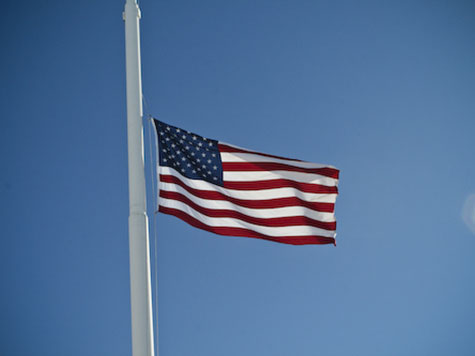
Icons are not always heroes. Heroes usually are not icons but simple, everyday folks who often give their “last full measure of devotion,” as Lincoln referred to the Gettysburg Civil War dead.
Our culture suffers from mis-directed hero worship. Idolizing someone because of developed talent is not wrong in and of itself. Truly, “to each his own” allows all of us to determine who deserves our applause and admiration. But institutionalizing “idols” as “heroes” is culture-destroying.
In 2012, a ticker tape parade in New York City is reserved for a Super Bowl team while those who served in Iraq from 2003 to 2011 get a collective “thanks,” at best. A serviceman from New Jersey who gave all he had dying this year gets his parents or wife a flag from his coffin, while this week a flag at “half staff” is reserved for a famous singer from the same state simply because she gave us great music. Should the same be done for Jon Bon Jovi or Bruce Springsteen when they pass? Should they be granted the same honors as our brave men and women who gallantly fight for our freedoms?
Basketball, baseball, football players, actors, and singers all receive financial and other rewards beyond most people’s wildest dreams and are all too often mislabeled in terminology and public adoration as “heroes.”
For a hero culture to survive, its ceremony and traditions must maintain some semblance of deference for honored actions as exemplified in its citizens. A measurement for heroic actions is offered in armed combat to ensure that the country awards medals of distinction to its soldiers corresponding to their actions; this to assure that the highest devotion to duty is never diluted, sullied, or becomes so common place as to be meaningless.
Does it mean that unrewarded soldiers may not have given the same courage as a Medal of Honor recipient–courage resulting in the loss of their life? No, it means a value is set by imperfect mortals who witnessed a heroic action, report and validate it, and thus preserve a culture of honor that exalts the finest qualities of a hero.
Who is a hero, and why should we pay our respects to them any longer? Really, isn’t a hero someone who admirably fulfills a selfless act demonstrating an unprecedented amount of great courage? A hero can be a warrior, a savior, a peacemaker, a teacher, a parent, a brother or sister who gives up valuable time and often their very life. Should celebrities deserve the same traditional honors we render to true American heroes?
America has many long-standing traditions. Many of those traditions comprise of activities fulfilled to honor our heroes. Some of those traditions may entail a twenty-one gun salute during a funeral procession, naming a naval ship after the hero, a parade, or even flying the American Flag at half-staff.
Nathaniel Hawthorne put it well:
“A hero cannot be a hero unless in a heroic world.”
It’s a subjective term, but what is not subjective are the key attributes used to define the word–selflessness, courage, admirable action, etc. Heroes are confronted with a difficult situation. They face that situation head on realizing some type of risk is involved. They set that risk aside and do what they must to defuse the situation. In the past ten years, our military members have demonstrated a grave amount of heroism. Have we maintained our traditions in honoring them? Many believe we have placed more emphasis in honoring non-heroes above America’s true heroes.
Gestures of respect for celebrities who pass, while reasonable, should not entail identical activities and events used to honor our the men and women who selflessly safeguard our nation. America is arguably losing our traditions and values by placing celebrities on a higher totem pole above our true heroes. By treating celebrities in the same fashion as our best and brightest warriors, with time, Americans will become passively conditioned to believe similar acts are appropriate when, in fact, they are not.
We as a nation have established certain laws to ensure our customs and traditions go untouched. The American Flag is a protected symbol and specific regulations found in the U.S. Code determine how we as citizens should respect our flag. Similarly, U.S. Codes outline how the American flag should be displayed in honoring our heroes–not celebrities. America is rich with heroes. Our first responders, military, and everyday citizens conduct acts of heroism on a daily basis. Unfortunately, heroism is a subjective term, and that subjectivity is devaluing those who deserve the true respect and traditional honors deemed appropriate by their selfless acts of bravery.
James Michael Pratt is a New York Times bestselling novelist and non-fiction author, CEO of PowerThink Publishing, public speaker, Op Ed writer for The Daily Caller, and Founder of Reagan Revolution 2. His creative work may be reviewed at www.jmpratt.com and www.jerusalemreports.com WIKISTRAT and owner of IranWarMonitor.com. He has worked in South America, Africa, the Middle East, Asia, and Europe, focusing on intelligence and security and interviewing current and former terrorists, including members of the Taliban. He is the author of Sociocultural Intelligence: The New Discipline of Intelligence Studies and the children’s book American Patriotism. You can follow him on Facebook
Kerry Patton, a combat service disabled veteran, is a senior analyst for

COMMENTS
Please let us know if you're having issues with commenting.